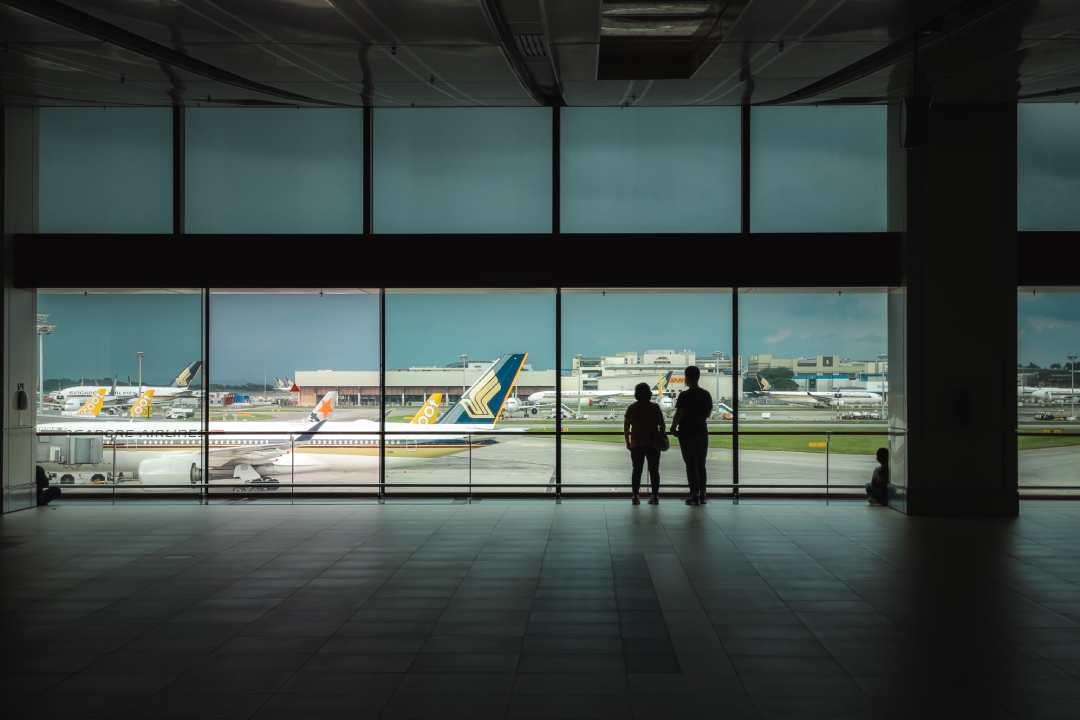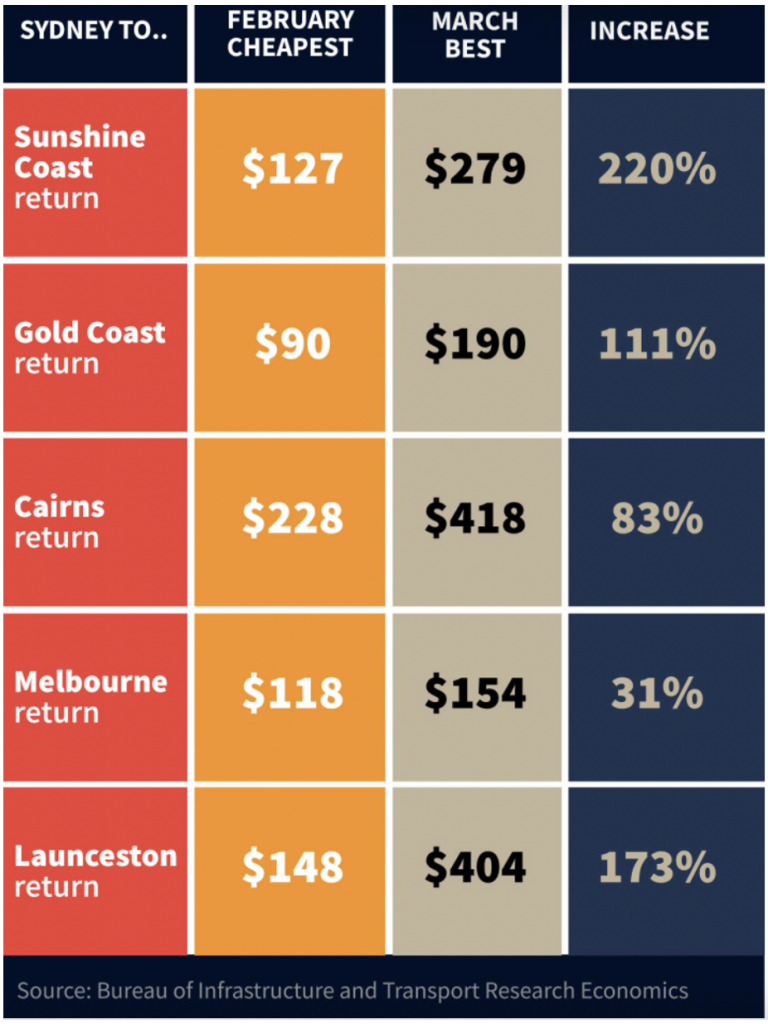

If you want to blame someone for the unbelievable spike in the price of airline travel, the Daily Tele says we should be blaming two political leaders — Vladimir Putin and WA’s Premier Mark McGowan!
And while we’re copping a big flight cost going to Melbourne today because it coincides with the Grand Prix at Albert Park, my biggest concern is that this component of inflation doesn’t stay up for too long.
If inflation persists and doesn’t follow the script that Reserve Bank boss Dr Phil Lowe has been expecting (which tells us that inflation will be temporary), then we could be in for interest rate trouble.
If it is temporary, then the need for the RBA to push up interest rates too quickly and too soon will be less necessary. And if we can avoid these unwanted shifts in interest rates, then we reduce the chance of excessive rate hikes causing a recession in 2023. So watching the causes of inflation, such as higher airline charges and seeing them fall ASAP, is a really big deal.
In the US, inflation is such a worry that they’re expecting 10 months in a row of rate rises! Inflation over there is 7.5%. Here it’s now 3.8%, which is why the 22 cents-a-litre cut in the fuel excise is an important play by Treasurer Josh Frydenberg, which would be kept in place even if Labor wins the election. In fact, Labor has implied it might extend the cut but this wouldn’t be necessary if the Ukraine war ends soon and the oil price falls.
Our inflation could be contained by the double-barrel effect of the lower petrol price, thanks to the Budget and a falling oil price if peace occurs in Europe.
To understand the possibilities of too high inflation causing a recession, note this from marketwatch.com: “Higher inflation will force consumers to limit their spending by so much that the economy will slump into a recession by the July-September quarter, former Federal Reserve Governor Lawrence Lindsey said on Monday.”
Speaking on CNBC, the Governor added: “Inflation is eating into consumer spending power, they’re going to have to cut back.”
And another alarmist has thrown this into the worrywart can: “Inflation in the US ‘is just getting started’ and will get well into the double digits, peaking at 15 to 16 per cent as it did in 1980, strategist Larry Jeddeloh warns”, The Australian’s Cliona O’Dowd reports today. “Speaking at a UBS event on Wednesday, the founder of influential Minneapolis-based, The Institutional Strategist newsletter and institutional advisory service, TIS Group, also tipped oil prices could hit as high as $US300 a barrel, as he warned of the potential for markets to ‘lock up’ as the US Federal Reserve tries to tame runaway inflation,” the report reveals.
I think this guy is exaggerating but it does show how important inflation and the oil price can be.
The Daily Tele’s John Rolfe (my consumer expert on my old Sky Business program) says: “Data from the federal government’s Bureau of Infrastructure and Transport Research Economics (BITRE) shows a 32 per cent jump in March compared to February for the cheapest tickets. They haven’t been this high since December 2020.”
Rolfe and The Tele have shown what has happened to airfares and it’s not great reading.

The major reason for the big price hikes for air travel is the cost of aviation fuel, which has been driven by Putin’s invasion of Ukraine, which has pushed up the cost of fuel by 110%. This can be 33% of the cost of running an airline!
Meanwhile, WA’s Mark McGowan and his closed border policy has led to a huge accumulation of pent-up demand and now the borders are open, demand has surged.
Tony Webber, former Qantas chief economist and now an academic at UNSW said: “When the Premier of WA came out and said ‘let it all hang out’ that’s when a lot of confidence returned.”
That said, in the whole scheme of things, I think most of our airline issues are down to Vladimir Putin, and ending this war will be the best development for the people of Ukraine, the inflation rate and the strength of the local and global economies.
Other inflationary issues such as supply chain problems linked to the pandemic are also important to the inflation rate but getting the oil price down is the biggest threat to causing a recession. Pray for peace!